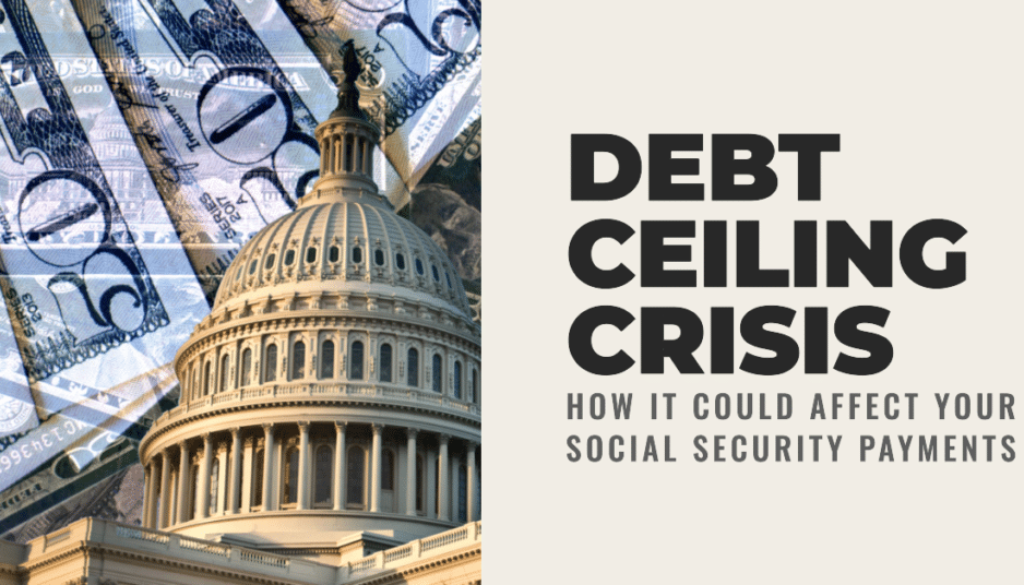How the Debt Ceiling Crisis Could Affect Your Social Security Payments
How the Debt Ceiling Crisis Could Affect Your Social Security Payments
If you are one of the millions of Americans who rely on Social Security benefits, you might be wondering how the ongoing debt ceiling crisis could affect your monthly payments. The debt ceiling is a legal limit on how much money the federal government can borrow to pay its bills, such as interest on the national debt, Medicare and Medicaid reimbursements, military salaries and, of course, Social Security benefits.
The United States officially hit its debt limit on Jan. 19, 2023, and since then the Treasury Department has been using accounting maneuvers known as extraordinary measures to continue paying the government’s obligations and avoid a default. (“Explaining the Debt Limit And Its Role in Borrowing”) However, those measures are expected to run out by June 1, 2023, unless Congress acts to raise or suspend the debt limit.
If Congress fails to do so, the Treasury Department will have to prioritize which payments to make and which to delay or skip. This could mean that some Social Security beneficiaries might not receive their full or timely payments. According to the Social Security Administration, about 70 million Americans received Social Security benefits in 2022, including retirees, disabled workers, survivors, and dependents.
The exact impact of a debt ceiling breach on Social Security payments is hard to predict, as it depends on several factors, such as how much revenue the government collects, how much cash it has on hand and how it decides to allocate its limited resources. A 2011 House of Representatives report detailed how the government has run so-called “tabletop exercises” as part of its debt ceiling contingency plans to find how government payments including Social Security and veteran’s benefits could be prioritized. However, those plans have not been made public and could change depending on the circumstances.
$50 for you, $50 for a friend
Some experts have suggested that the Treasury Department could try to protect Social Security payments by delaying other payments or borrowing from other trust funds. However, these options could have legal and practical challenges and could still fall short of meeting all the obligations. Moreover, any delay or reduction in Social Security payments could have profound consequences for millions of Americans who depend on them for their basic needs. 
Therefore, it is imperative that Congress acts swiftly and responsibly to raise or suspend the debt limit before it is too late. Doing so would not authorize any new spending or increase the national debt; it would simply allow the government to pay for what it has already agreed to spend. Failing to do so would risk a historic default that could harm the economy, damage the creditworthiness of the United States, and jeopardize the financial security of millions of Americans who rely on Social Security benefits.
My Business Web Space may earn an Affiliate Commission if you purchase something through recommended links in this article.


You must be logged in to post a comment.